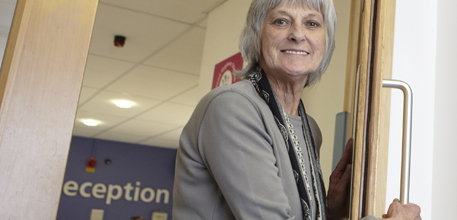
Researchers at University Hospital Southampton (UHS) and the University of Southampton are calling for over 70s to volunteer in a nationwide trials of a coronavirus vaccine pioneered in the UK.
Work on the vaccine, developed by clinical teams at the University of Oxford’s Jenner Institute and Oxford Vaccine Group, began in January.
Over 3500 Southampton people aged between 18 and 55 responded to the team’s call to join the original phase I trial. Now, with phase II assessing the vaccine in older adults and children they’re calling for Southampton’s over 70s to come forward.
”We’re looking at how the body’s immune system responds to the vaccine, and how much this varies across age ranges,” comments Professor Saul Faust, Professor of Paediatric Immunology and Infectious Diseases at the University of Southampton and Director of the NIHR Southampton Clinical Research Facility at University Hospital Southampton.
“An effective vaccine is critical to exiting the pandemic and will be particularly important in protecting people over the age of 70 at higher risk. We’re hoping that we can involve enough over 70s now to progress development of this vaccine, which is one of only four in trial worldwide and could pave the way for a vaccine to be delivered later this year,” adds Professor Faust.
Volunteering
Click here for further information and to sign-up to volunteer.
Half of volunteers will receive the ChAdOx1 nCoV-19 vaccine and the other half will be given a licensed ‘control’ vaccine against meningitis and sepsis (the conjugate MenACWY vaccine) as comparison. Production of the vaccine has already been scaled up pre-trial to prepare as early as possible for potential future deployment.
ChAdOx1 nCoV-19 is made from a weakened version of a common cold virus (adenovirus) from chimpanzees that has been genetically changed so that it is impossible for it to grow in humans.
This has been combined with genes that make proteins from the COVID-19 virus (SARS-CoV-2) called spike glycoprotein which play an essential role in the infection pathway of the SARS-CoV-2 virus.
Posted on Friday 5 June 2020